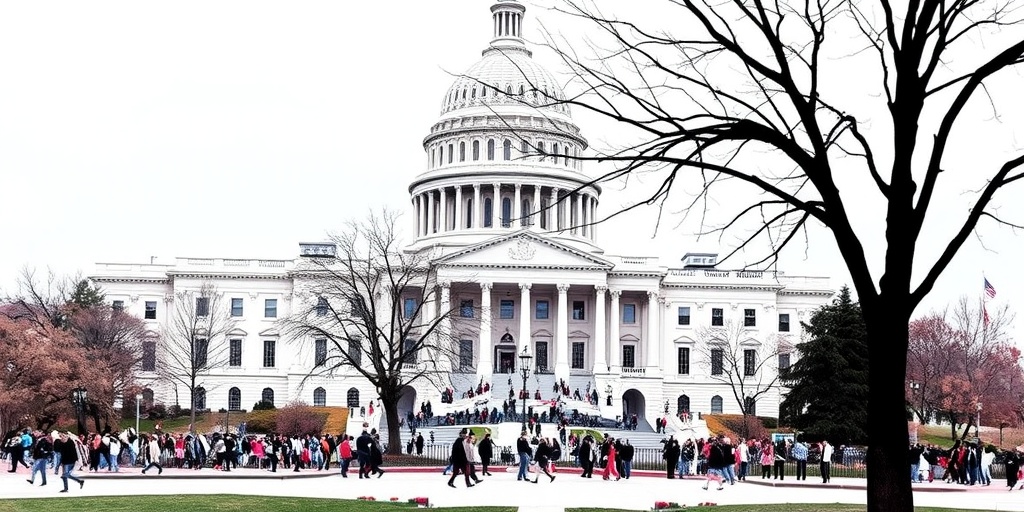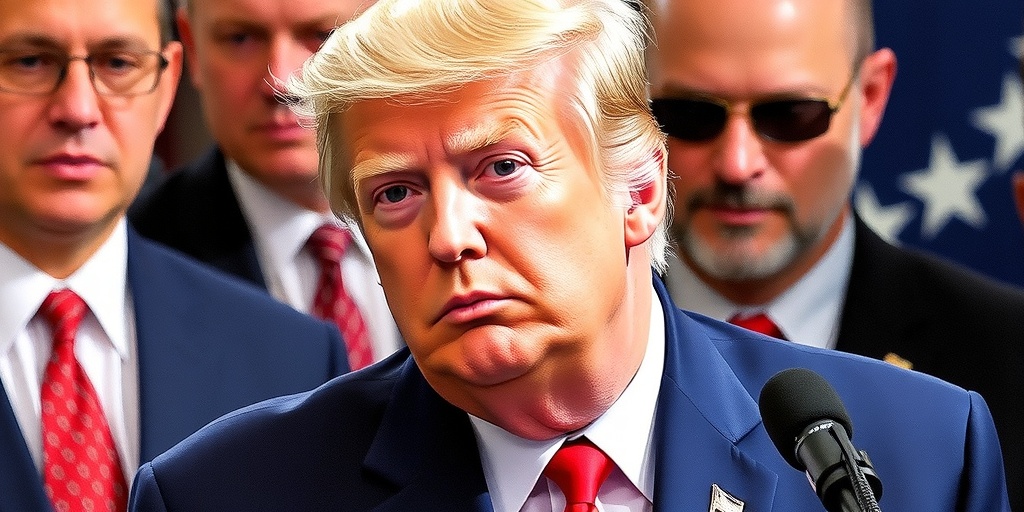Now Reading: Senator Gary Peters Won’t Seek Re-election in 2026
-
01
Senator Gary Peters Won’t Seek Re-election in 2026
Senator Gary Peters Won’t Seek Re-election in 2026

Senator Gary Peters Announces Decision Not to Seek Reelection in 2026, Creating Challenges for Democrats in Michigan
In a significant political development, Senator Gary Peters of Michigan announced on Tuesday that he will not be seeking reelection for his Senate seat in 2026. This decision presents a formidable challenge for the Democratic Party as it prepares to defend an open seat in a critical battleground state. Michigan, which was won by President Trump in the controversial 2024 election, complicates the party’s already tough journey towards regaining a Senate majority in the upcoming election cycle.
Senator Peters, who has represented Michigan in the Senate since his election in 2014, previously secured his position during the 2020 election with a narrow victory margin of less than two percentage points. His decision not to pursue a third term adds another layer of complexity to the upcoming electoral landscape, especially considering that Michigan is set to also experience an open gubernatorial race, as Governor Gretchen Whitmer is term-limited and will be stepping down.
Over his tenure in the Senate, Mr. Peters has served as the chairman of the Democratic Senatorial Campaign Committee for the last two election cycles, playing a crucial role in shaping the party’s strategies and priorities during this period. Reflecting on his journey in public service, Mr. Peters stated, "I always thought there would be a time that I would step aside and pass the reins for the next generation. I also never saw service in Congress as something you do your whole life." His comments highlight a desire to prioritize the next generation of leaders, an ethos he seems to embody in stepping aside at this juncture.
At 66 years old, Peters is considered relatively young for a senator departing from his political post, especially given that he has already amassed considerable experience through three terms in the House of Representatives and service in the Navy Reserve. His choice to create space for new voices comes at a time when many incumbents in Washington appear inclined to hold onto their positions for as long as possible, further underscoring his commitment to generational change in political leadership.
In a video message released on Tuesday morning, Peters discussed the “most important chapter in my life,” emphasizing that it is still ongoing, particularly with the joyous addition of becoming a grandfather. This heartfelt acknowledgment of personal milestones illustrates the interconnectedness of public service and private life, highlighting how personal circumstances can impact political decisions.
The impending 2026 Senate race is pivotal for Democrats, who face an uphill battle to reclaim control. Currently, Republicans maintain a 53-seat majority, and with Vice President JD Vance wielding the tiebreaking vote, Democrats would need to secure victories in at least four additional states to regain a majority. As the political environment shifts and the stakes rise, every seat becomes critical, especially in competitive states like Michigan.
The Democratic Party faces a tightening landscape, as opportunities for pick-ups are limited. They are also tasked with defending seats that are considered vulnerable, such as that of Senator Jon Ossoff in Georgia, who is also up for reelection. The party’s recent history in Michigan demonstrates their resilience; they successfully held a Democratic seat last year when Elissa Slotkin, a Democratic House member, clinched victory over Republican former Representative Mike Rogers. The election was marked by intense competition, with Slotkin ultimately prevailing by less than 20,000 votes and a margin of roughly 0.3 percentage points, showcasing the razor-thin margins that can define these high-stakes races.
As the political landscape continues to evolve, Peters’ announcement may influence the dynamics of the upcoming electoral race in Michigan. It remains to be seen who will emerge as a strong candidate to fill the void left by Peters, a representative who has worked to amplify the Democratic voice in a state that can often swing between parties. The outcome of this seat, along with the open gubernatorial position, will undoubtedly shape the future of Michigan politics and the broader national scene.
In conclusion, Senator Gary Peters’ decision not to seek reelection is a watershed moment for both him personally and for the Democratic Party as they adapt to a changing electoral landscape. His departure signals both an end to a significant chapter in Michigan politics and the beginning of a complicated and highly competitive race for his Senate seat. As Democrats gear up to defend their positions and reclaim lost ground, the focus will intensify on Michigan, a state that continues to be pivotal in the broader national political narrative.
Stay Informed With the Latest & Most Important News
Previous Post
Next Post
-
 01New technology breakthrough has everyone talking right now
01New technology breakthrough has everyone talking right now -
 02Unbelievable life hack everyone needs to try today
02Unbelievable life hack everyone needs to try today -
 03Fascinating discovery found buried deep beneath the ocean
03Fascinating discovery found buried deep beneath the ocean -
 04Man invents genius device that solves everyday problems
04Man invents genius device that solves everyday problems -
 05Shocking discovery that changes what we know forever
05Shocking discovery that changes what we know forever -
 06Internet goes wild over celebrity’s unexpected fashion choice
06Internet goes wild over celebrity’s unexpected fashion choice -
 07Rare animal sighting stuns scientists and wildlife lovers
07Rare animal sighting stuns scientists and wildlife lovers




















